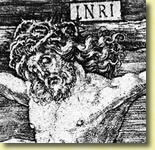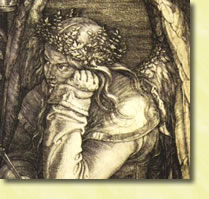I wish to preface the following as carefully as I can. I am a member of the ACNA; I know many of its bishops, and I have the highest respect for them. It pains me to find myself in disagreement with them. In light of recent heated controversy, I at first thought it would be best not to contribute further to the acrimony. However, I have reluctantly come to conclude that I need to clarify my own position because of misrepresentations, indeed outright lies, that have begun appearing on the internet. I would beg that none of what follows should be considered an “in your face” affront to those who wrote the College of Bishops statement.
My real concern with the ACNA College of Bishops statement on Sexuality and Identity is that difficult issues in the church need to be addressed through extended charitable public conversation, not simply through edicts delivered from on high. It is not helpful simply to lay down the law. If the bishops had released a pastoral letter saying the following, I think it would have been more helpful:
1) A conversation needs to take place and clarification is needed about how the church ministers to celibate Christians who “experience same-sex attraction.”
2) The adjective “gay” seems to be used with different understandings, and that is leading to confusion.
3) Those who use the adjective to describe themselves claim that it is simply an adjective, and has value in the pastoral context.
4) Some who do not use the adjective are concerned that it is defining an “identity” that is in competition with Christian identity.
5) Both sides need to be clear that our identity is in Christ, but also that Christian identity can be expressed using different vocabulary.
6) Orthodox Christians can and do disagree about many things, but when such issues are not church-dividing, we need to exercise charity and assume the integrity of those who view things differently.
7) Those who use the term “gay Christians” need to be aware that some are confused because of the way that the term is used in the secular culture. They need to be clear that their identity is in Christ and Christ alone, and they need to exercise caution in their use of language so as not to confuse or scandalize others.
8) Those who are uncomfortable with the term need to recognize that those who use it are committed to Christ above all and to being faithful Christian disciples. They are clear that their identity is in Christ alone, and they have affirmed repeatedly that they are committed to traditional Christian sexual morality and are trying to do the best they can to minister to sexually broken people. Those who use the term “gay Christian” are clear that they are using the term as a descriptor for Christians who experience same-sex attraction who are either committed to celibacy or are in opposite-sex marriages. While their vocabulary might not be that which others would prefer, the church needs to support them and to understand that they are members of Christ’s body about whom we must not say “We have no need of you.” We need to be clear that Christ died for sexually broken people, and that we are all sexually broken people. We need to preach the gospel in such a way that it will be heard as “good news” to all, whatever might be the particular sins and temptations with which we struggle. (more…)













